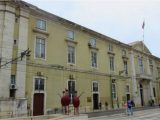ASYLUM | FORCED MARRIAGE | GUINEA-BISSAU | FULA ETHNIC GROUP | ISLAMIC FAITH
Central Administrative Court South, proc. 07157/11, 24.02.2011
JURISDICTION: Administrative
SUBJECT: Asylum application
RAPPORTEUR: Teresa de Sousa
RULING: Grants the appeal, overturning the appealed judgment, and upholds the action, annulling the contested act and ordering the appealed party (through the Foreigners and Borders Service) to assess and decide on the application for asylum or residence on humanitarian grounds, with the necessary steps based on objective and reliable evidence.
DOMESTIC LAW:
Law No. 27/2008, of 30 June 2008 [Articles 2(1)(j), 18, 84]
Decreto-Lei n.º 27/2008, de 30 de junho (artigo 18.º)
Code of Administrative Procedure (Article 87)
Code of Civil Procedure [Articles 659, 668(1)]
Code of Procedure for the Administrative Courts [Article 71(2)]
INTERNATIONAL LAW:
UNHCR Handbook on Procedures and Criteria for Determining Refugee Status (§ 196)
FOREIGN LAW: n.a.
EXTRA-LEGAL SOURCES: n.a.
PALAVRAS-CHAVE: Asilo; ónus da prova; perícias médico-legais; défice de instrução procedimental; factos controvertidos e incertos; estatuto de refugiado; estrangeiros; apátridas; raça; religião; nacionalidade; integração em certo grupo social; Estado de nacionalidade ou residência habitual; graves sevícias físicas às mãos do namorado; informação disponível sobre o país de origem; casamento forçado; violência física e sexual contra mulheres; Estado guineense; pedido de asilo; sistemática violação dos direitos das mulheres; Guiné-Bissau; meios de comunicação social de todo o mundo; tradições locais; casamento arranjado pelo pai; alegada “honra”; posto de fronteira do aeroporto de Lisboa; passaporte guineense; autorização de residência portuguesa; Serviço de Estrangeiros e Fronteiras; zona internacional do posto de fronteira; Conselho Português para os Refugiados; nacional da Guiné-Bissau; autenticidade dos documentos; passaporte falso; autorização de residência alheia; etnia fula; religião muçulmana; tradição muito antiga na comunidade muçulmana; prometida em casamento pelo pai; ONG defensoras dos direitos das mulheres a operar no país; agência noticiosa Lusa; casamento forçado de raparigas jovens; prática ancestral enraizada; etnias animistas da Guiné Bissau; Balantas; Papéis; jovens guineenses; refúgio nas igrejas; Igreja evangelista; Relatório do Departamento de Estado dos EUA; grupos dos direitos humanos nacionais e internacionais; Comité Internacional da Cruz Vermelha; ONG locais; programas para combater o casamento infantil e proteger as vítimas; faixa etária das adolescentes e jovens alvo desta prática; cidadão nacional; dificuldades económicas; benefício da dúvida; pedido de asilo infundado e fraudulento; autorização de residência por razões humanitárias; sistemática violação dos direitos humanos; informações falsas; situação no país de origem da requerente; Entrevista Destinada à Determinação do Estatuto de Refugiado; costume na comunidade muçulmana da Guiné Bissau; virgem; língua; audição da cidadã guineense; grupo social específico; certas regiões (sobretudo rurais) da Guiné Bissau; grupo social com determinadas características comuns; vulnerabilidade ao peso da tradição e da religião na determinação de casamentos forçados ou combinados entre famílias; meio urbano onde práticas tradicionais de casamentos forçados não serão tão arreigados; escolaridade; sequelas físicas visíveis; conversa informal
COMMENTS: Coming soon.
REFERENCES IN THE LITERATURE:
JERÓNIMO, Patrícia, “Intolerância, integração e acomodação jurídica das minorias islâmicas na Europa – os desafios postos à prática judicial”, in Paulo Pulido Adragão et al. (eds.), Atas do II Colóquio Luso-Italiano sobre Liberdade Religiosa, Porto, FDUP, 2017, pp. 59-100.
Download the ruling.




